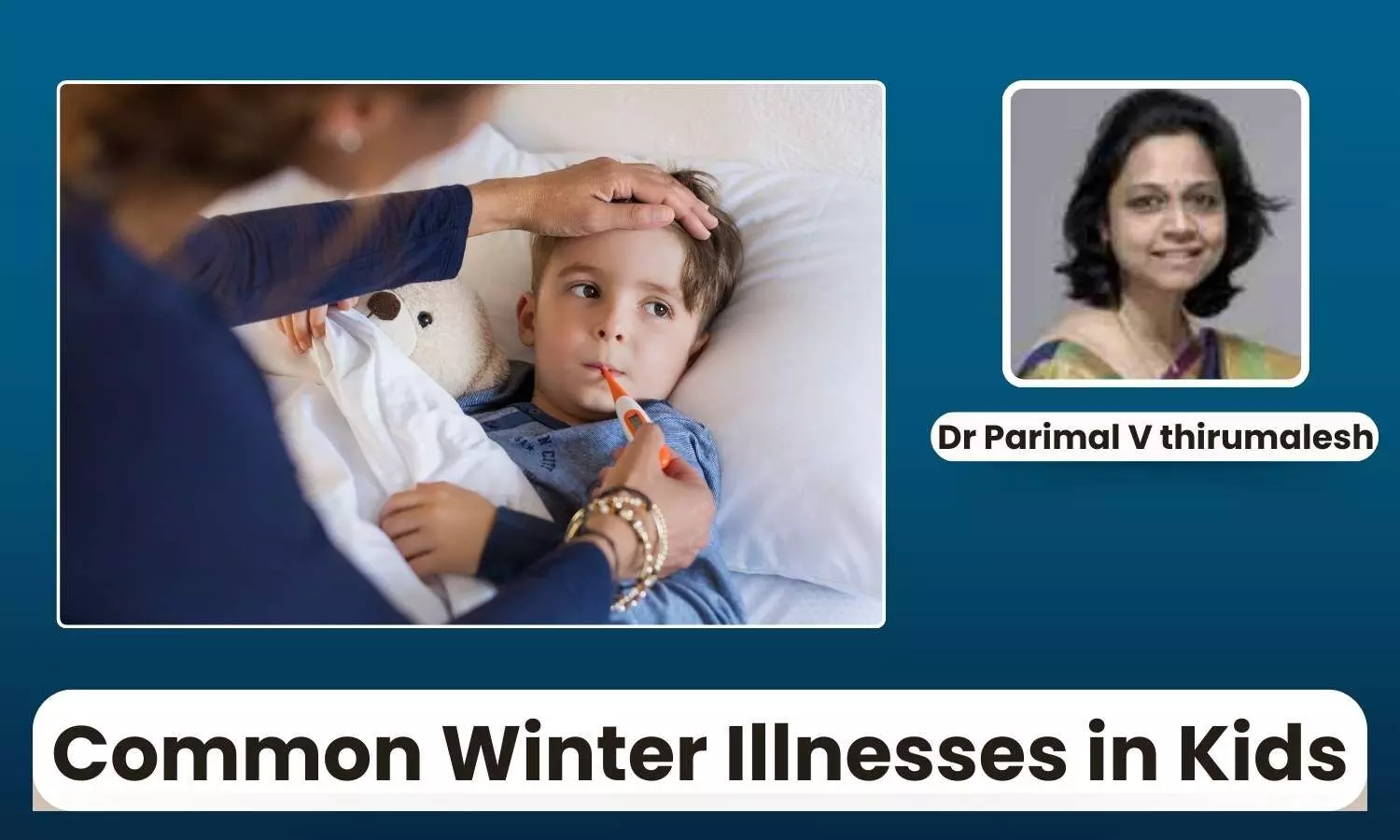Common Winter Illnesses in Kids and How to Prevent Them - Dr Parimala V Thirumalesh

Winter can be a challenging season for children’s health. The cold weather, combined with increased indoor activities and close contact with others, creates an environment where illnesses spread easily.
Understanding the most common winter illnesses in kids and how to prevent them can help parents ensure their children stay healthy during the colder months.
Common Winter Illnesses in Kids
- Colds: The common cold is caused by various viruses, particularly rhinoviruses. Symptoms include a runny nose, sneezing, sore throat, and mild fever. Children are more susceptible due to their developing immune systems and frequent contact with peers.
- Flu (Influenza): The flu is more severe than a cold, with symptoms such as high fever, body aches, fatigue, and cough. It spreads rapidly in schools and daycare centres, especially during peak flu season.
- Bronchiolitis: Commonly caused by the respiratory syncytial virus (RSV), bronchiolitis affects the lower airways, leading to wheezing, coughing, and difficulty breathing in young children, particularly infants.
- Ear Infections: Cold weather often leads to ear infections in children due to fluid build-up in the middle ear following a cold or sinus infection.
- Norovirus (Stomach Flu): This highly contagious virus causes vomiting, diarrhoea, and stomach cramps. It spreads easily in close-contact settings like schools.
Preventing Winter Illnesses
- Hand Hygiene: Teach children to wash their hands frequently with soap and water, especially before meals and after playing. Encourage the use of hand sanitizers when soap isn’t available.
- Vaccinations: Ensure children are up-to-date with vaccinations, including the annual flu shot, which significantly reduces the risk of severe influenza.
- Healthy Diet: Provide a balanced diet rich in fruits, vegetables, and whole grains to strengthen their immune system. Foods high in vitamin C, like oranges and spinach, are particularly beneficial.
- Stay Hydrated: Keep children well-hydrated to support overall health and help flush out toxins.
- Avoid Close Contact: Limit exposure to sick individuals and encourage children to cover their mouths and noses with a tissue or elbow when sneezing or coughing.
- Dress Warmly: Ensure children are dressed appropriately for the cold weather, including hats, scarves, and gloves, to protect them from the chill.
- Regular Exercise: Encourage outdoor play and physical activity when weather permits, as it boosts immunity and overall health.
- Proper Rest: Ensure children get enough sleep to help their bodies recover and maintain strong defences against infections.
When to See a doctor?
If a child’s symptoms worsen or persist beyond a few days, or if they experience high fever, severe dehydration, difficulty breathing, or prolonged vomiting, consult a paediatrician. Early intervention can prevent complications and aid faster recovery.
Winter illnesses in kids are common but manageable with the right preventive measures. By maintaining good hygiene practices, ensuring proper nutrition, and seeking medical attention, when necessary, parents can help their children navigate the winter months healthily and happily.


